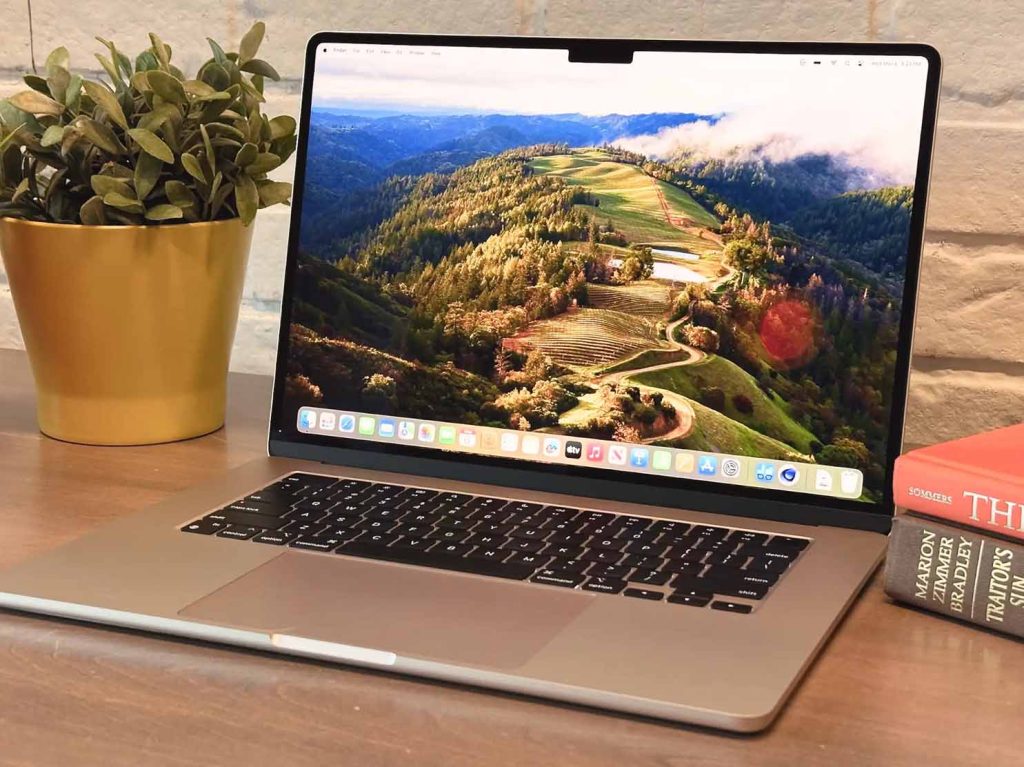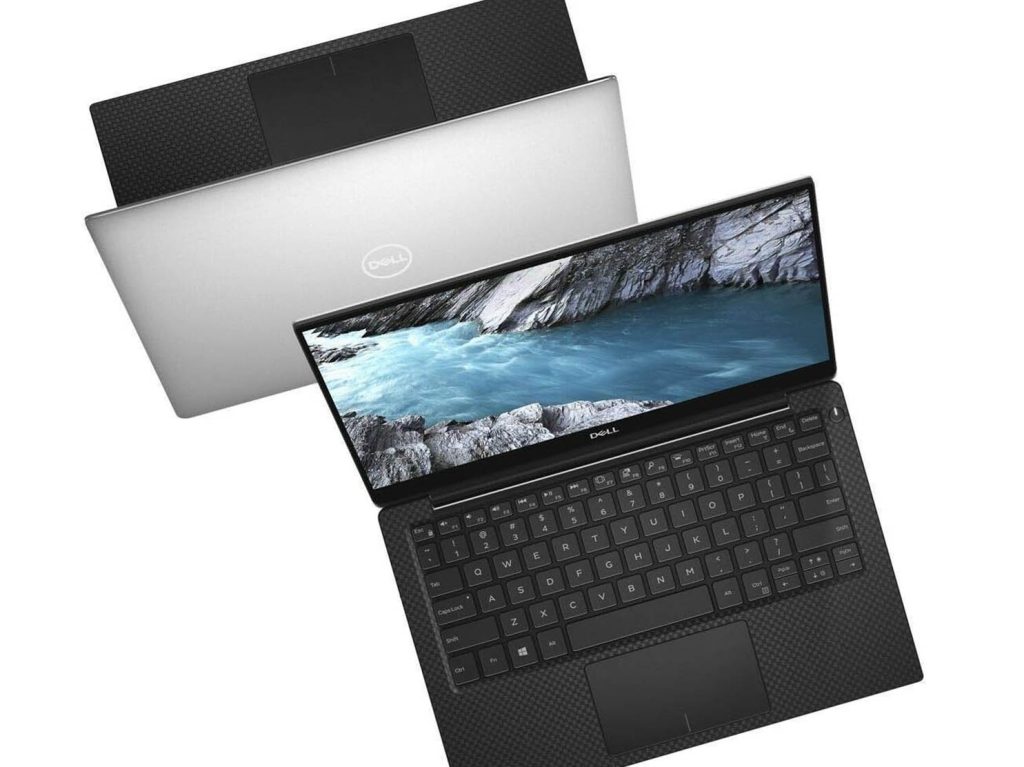With the arrival of 2025, the lightweight laptop market has once again entered a fierce competition. Apple’s MacBook Air M3 and Dell’s XPS 13 are two of the most popular high-end lightweight laptops currently on the market. Whether it’s for students, office workers, or professionals, the demand for lightweight laptops is constantly growing due to their balance of portability and powerful performance. We will compare the 2025 MacBook Air M3 and the Dell XPS 13 across several aspects, including performance, design, display quality, battery life, and price, to help you choose the best laptop that fits your needs.
1. Design and Appearance: MacBook Air M3 vs. Dell XPS 13
MacBook Air M3 Design:
The MacBook Air has always been known for its sleek and elegant design, and the 2025 MacBook Air M3 continues this tradition. It features Apple’s unibody aluminum design, with a thickness of only 0.63 cm and a weight of approximately 1.24 kg, making it highly portable and perfect for daily mobile office use. Its signature honeycomb metal back, ultra-narrow bezels, and thinner overall design make it lighter than its predecessor.
The MacBook Air M3 is available in several color options, including Space Gray, Silver, and Midnight Blue, offering users more choices for personalization. The all-metal exterior ensures a high-quality feel and enhances durability.
Dell XPS 13 Design:
The Dell XPS 13 is also highly regarded for its premium design. The 2025 XPS 13 continues with its refined all-aluminum body, featuring narrower bezels that nearly cover the entire front with the screen. The XPS 13’s thickness is 0.58 cm, and it weighs 1.2 kg, making it easy to carry and fit into any backpack without feeling bulky.
The XPS 13 comes in classic “Platinum Silver” and “Midnight Black” colors, offering a clean, modern look. Additionally, it features Dell’s “InfinityEdge” display technology, further enhancing the screen-to-body ratio and providing a more immersive visual experience.
Both the MacBook Air M3 and the Dell XPS 13 have unique appeals when it comes to design. The MacBook Air M3 attracts users with its simple, elegant look and variety of color choices, while the Dell XPS 13 impresses with its refined aluminum body and higher screen-to-body ratio, combining modern aesthetics with cutting-edge technology. The final choice depends on personal preference.
2. Performance Comparison: M3 Chip vs. Intel Core i7
The 2025 MacBook Air is powered by Apple’s custom-designed M3 chip, based on a 3nm process. It features an 8-core CPU and a 10-core GPU, delivering powerful computing and graphics processing capabilities. Compared to the previous M2 chip, the M3 chip provides a significant performance boost, particularly in multitasking and high-performance computing.
The M3 chip also has excellent power efficiency, maintaining strong performance while significantly extending battery life. Whether for daily office work, video editing, or light gaming, the MacBook Air M3 handles it effortlessly. Moreover, the M3 chip is equipped with a 16-core Neural Engine, which excels in AI and machine learning tasks.
Dell XPS 13 Performance:
The 2025 Dell XPS 13 features the latest Intel Core i7-1365U processor, based on Intel’s 13th-generation Core architecture, with 12 cores and 16 threads. The processor can reach a turbo boost frequency of up to 4.8 GHz, handling most professional applications and heavy workloads with ease. Additionally, the XPS 13 is equipped with 16GB of RAM and a 512GB solid-state drive, ensuring smooth multitasking and efficient handling of large files.
While Intel processors still have an advantage in single-core performance, the XPS 13 might fall short compared to the M3 chip in terms of multi-core performance and power management. Nevertheless, the XPS 13 remains a powerful workstation suitable for most users, especially for those who prefer the Windows ecosystem.
In terms of performance, the MacBook Air M3 clearly has the upper hand, especially with its custom-designed M3 chip, which excels in multitasking, graphics rendering, and AI computation. While the Dell XPS 13 features a powerful Intel Core i7 processor, its multi-core performance and power efficiency lag behind the M3 chip. For users with high-performance needs, the MacBook Air M3 may be the more attractive option.
3. Display Comparison: Retina Display vs. 4K Touchscreen

MacBook Air M3 Display:
The MacBook Air M3 comes with a 13.6-inch Liquid Retina display with a resolution of 2560×1664, supporting a wide color gamut (P3) and True Tone technology. This display delivers exceptional color accuracy and comfortable viewing. Whether for watching videos, editing photos, or browsing the web, the visual experience is clear and vibrant. In particular, the True Tone technology automatically adjusts the screen’s color temperature in environments with softer lighting, reducing eye strain during prolonged use.
Dell XPS 13 Display:
The Dell XPS 13 offers more display options, including a 4K touchscreen and an FHD+ screen. The 4K touchscreen version boasts a resolution of 3840×2400, delivering stunning color performance—ideal for those working in graphic design, video editing, or tasks requiring precise color accuracy. The touchscreen functionality also provides a more convenient interactive experience, particularly beneficial for creative professionals and users who prefer to take handwritten notes.
If you prioritize color accuracy and comfortable everyday use, the MacBook Air M3’s Retina display will meet your needs. However, for those who require a higher resolution and touchscreen functionality, the Dell XPS 13’s 4K touchscreen is a superior option. Both laptops offer exceptional displays, so the choice depends on your specific needs for resolution and touch capability.
4. Battery Life Comparison
MacBook Air M3 Battery Life:
Thanks to the energy-efficient M3 chip, the 2025 MacBook Air offers excellent battery life. In daily use, the MacBook Air M3 can last for more than 18 hours, even under moderately heavy workloads, and it can still provide over 12 hours of use with intensive tasks. For users who need to work on the go for extended periods, the MacBook Air M3’s battery performance is a significant advantage.
Dell XPS 13 Battery Life:
The Dell XPS 13 is equipped with a compact 52Wh battery. In real-world usage, it can last around 10 to 12 hours, depending on the workload. If you’re mainly doing light office work and web browsing, the XPS 13’s battery life will be sufficient for everyday use. However, if you need to work for extended periods without access to charging, the MacBook Air M3’s battery life will be a better choice.
In terms of battery life, the MacBook Air M3 has a clear edge, with its efficient performance allowing for long-lasting use. While the Dell XPS 13 offers decent battery life, it falls short in heavy usage scenarios compared to the MacBook Air M3.

5. Price Comparison
MacBook Air M3 Price:
The 2025 MacBook Air M3 starts at £1,099. While this is on the pricier side, considering its excellent performance, impressive battery life, and seamless integration within the Apple ecosystem, the price-to-performance ratio is quite high for those seeking a powerful and reliable work tool.
Dell XPS 13 Price:
The 2025 Dell XPS 13 also starts at £1,099, similar to the MacBook Air M3. However, the XPS 13 offers more customization options, including different display configurations and storage capacities, allowing you to tailor the laptop to your specific needs.
In terms of price, the MacBook Air M3 and Dell XPS 13 are similarly priced, with both offering strong performance, excellent displays, and long battery life. For users on a budget, the price difference is negligible, and the decision should come down to personal preferences and specific needs.
6. MacBook Air M3 vs. Dell XPS 13 – Which One is Right for You?
- MacBook Air M3 is better suited for:
- Users who demand high performance and battery life.
- Those who prefer macOS and are invested in the Apple ecosystem.
- People who need to work or study for long hours without frequent recharging.
- Dell XPS 13 is better suited for:
- Users who prefer the Windows operating system.
- Creative professionals who need higher resolution and touch capabilities.
- Users with flexible budgets who want more customization options.
MacBook Air M3 excels in performance, battery life, and system integration, while the Dell XPS 13 appeals with its high-resolution screen and customizable options. If portability, system stability, and long battery life are top priorities for you, the MacBook Air M3 is a better choice. However, if you require a higher-resolution display, touchscreen functionality, and the flexibility of the Windows platform, the Dell XPS 13 is a fantastic alternative.